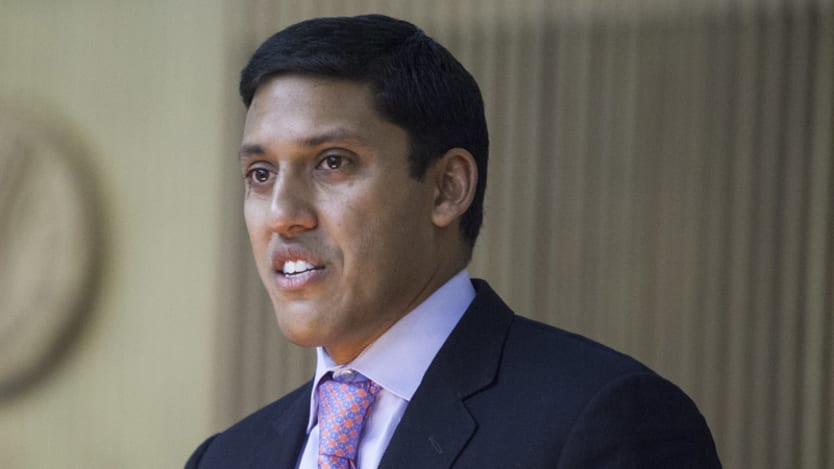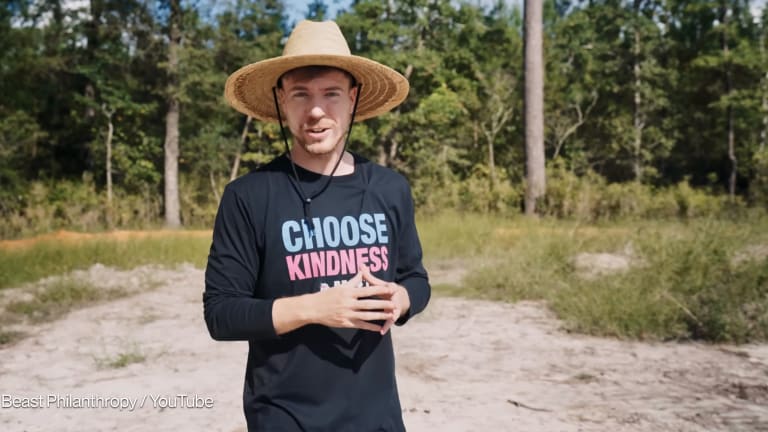
ROTTERDAM, Netherlands — The Rockefeller Foundation this week announced $8 million for the 100 Resilient Cities network, the program it started in 2013 but ended its main support for earlier this year to the dismay of those involved in it.
That move in April — which saw the foundation change course to channel much of its resilience work through the Atlantic Council — triggered a revolt from the roughly 100 chief resilience officers, or CROs, around the world. Their roles in writing resilience plans in city administrations, covering issues such as climate change, disease, and social cohesion, were initially funded through a two-year grant from 100RC, though 78% of cities then funded an ongoing position themselves.
100 Resilient Cities workers seek future beyond Rockefeller
More than 50 workers from the 100 Resilient Cities initiative are writing to the Rockefeller Foundation President Rajiv Shah to plead for more money to keep the network alive.
CROs wrote to Rockefeller Foundation President Raj Shah, asking for more money to allow them to transition to a new phase. In this week’s announcement “to continue supporting the work of [CROs] and member cities within the 100RC Network,” some saw evidence that the foundation had listened.
“I think Rockefeller is doing the right thing,” 100RC President Michael Berkowitz, who will step down at the end of the month, told Devex. “We need to continue to work in very tangible and practical ways with practitioners on the ground in cities and across sectors. [The new funding] keeps the network in place, the CROs largely are self-funded at this point. But I do think that this organizing mechanism that Rockefeller is doing is smart and worthwhile.”
At 100RC’s annual summit in the Netherlands this week, it fell to Elizabeth Yee — the former vice president of resilience finance at 100RC who joined Rockefeller as managing director of its climate and resilience initiative just two weeks ago — to outline what the future may hold for the network.
The decision not to renew 100RC’s six-year, $164-million grant means most of the 86 positions at 100RC offices in London, Singapore, Mexico, and New York end this month. However, Yee told Devex the $8 million is designed to last 18 months to allow a small group of 100RC staff to make sure CROs keep having “that space to collaborate and learn from each other.” She did not rule out the possibility of more funding to come at a later date.
Yee said the foundation had created “a five-year partnership pathway” to figure out how it could keep working with CROs and mayors. “‘Into perpetuity’ is what I like to think about,” she said, adding that the next year and a half will include reflections on how Rockefeller can “crowd-in” new partners.
“A lot of people want more answers than we have right now,” she added. “I think this is literally the launch of this process to say, ‘what do you need, what are the structures, and what are the things that we need in order to continue this movement and deliver that impact, and we’ll figure it out.”
That backstory meant there was much happening below the surface at the opening of the summit Tuesday, held in an old submarine factory in the port city of Rotterdam.
“It has been a bumpy ride,” Arnoud Molenaar, the CRO for Rotterdam, told the audience. “Yes, we were surprised about the announcement of The Rockefeller Foundation [ending its main grant for the network], but I am very proud of how we were able, as CROs, to organize ourselves, to start the discussions with The Rockefeller Foundation.” Molenaar added that “an exciting new phase” lies ahead.
Berkowitz used his speech to recall 100RC’s six years of work, which has seen 73 cities publish “holistic and actionable resilience strategies” with more than 3,500 tangible actions, from small social projects to ambitious infrastructure plans.
The challenge now, Berkowitz said, is implementation. He told Devex that, in addition to plans to write a book, that’s where he sees his future involvement in urban resilience after 100RC.
“As a community, we are getting better at designing integrated, inclusive, strategic projects, but what we are not as good at is executing on them,” Berkowitz said. “To the extent that I can play a role in helping cities design and prepare projects for procurement and funding, that’s where I want to be.”
Yee meanwhile has nascent plans for The Urban Resilience Fund, designed to encourage private investors to support resilience projects. “What Raj wants to do is think about concessional capital,” Yee told Devex. “What we realized as we were designing this thing is that developing-country budgets are already so tapped, so how can we provide, or The Rockefeller Foundation provide, maybe the first-loss layer in a larger structure that would allow this to happen and protect those communities?”
Rockefeller grants its name and $30M to new resilience center
A new center housed at the Atlantic Council will aim to build on The Rockefeller Foundation's 100 Resilient Cities initiative, with a greater emphasis on implementation.
As part of the changes to its resilience work, The Rockefeller Foundation announced in April a $30 million grant to the Atlantic Council to create the Adrienne Arsht-Rockefeller Foundation Resilience Center. That riled some in the 100RC movement who viewed the move as privileging theory over practice.
Yet Yee defended the Atlantic Council, citing their “amazing, national, ministerial-level relationships that especially in the developing-country context are so critical to actually getting stuff done.”
In her vision, 100RC and the Atlantic Council can “play together,” with the latter using its convening power to make the case to national governments to protect their communities’ investments in resilience projects.
“If I look back on our six years, one of the things that I think we would have done differently is ... we would have been less dogmatic about using cities as the only entry-point and that we would have used national governments as well,” Berkowitz told Devex.
“I agree with Liz. I think the Atlantic Council’s national-level perspective, and their contacts, and their knowledge across a number of geographies, is going to be very useful to the resilience movement going forward.”
Another area for improvement Berkowitz sees is coordination between an array of city networks: 100RC, ICLEI – Local Governments for Sustainability, C40 and United Cities and Local Governments.
“We need more actors but we also need to streamline and align them more,” he told Devex.
“Until there is a funder that puts money down in the middle of the table and says ‘no one gets this unless you guys all play together,’ I don’t know if it’s going to happen,” Berkowitz said.
And which funder would do that? “Bloomberg. That’s what the covenant of mayors sort of did on the climate mitigation side. That could be an example.”








